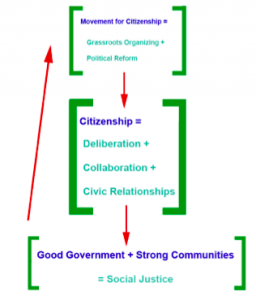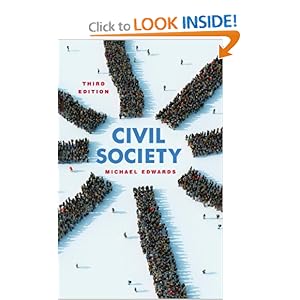We are excited to share with you that our organizational partners at the Davenport Institute have opened the application process for their 2014 Public Engagement Grant Program. The grant is perfect for NCDD members, and we highly encourage you to apply before the September 12 deadline. You can read more about the program below or find out more by clicking here.
 If you have a public engagement project that could use some consulting help, now is the time to apply for the seventh annual Davenport Institute Public Engagement Grant Program! This year we will be awarding $25,000 in funded consulting services to cities, counties, special districts, and civic organizations looking to conduct legitimate public processes on issues ranging from budgets to land use to public safety to water policy.
If you have a public engagement project that could use some consulting help, now is the time to apply for the seventh annual Davenport Institute Public Engagement Grant Program! This year we will be awarding $25,000 in funded consulting services to cities, counties, special districts, and civic organizations looking to conduct legitimate public processes on issues ranging from budgets to land use to public safety to water policy.
The application deadline is Friday, September 12 and decisions will be announced by October 1.
The Davenport Institute’s Public Engagement Grants are service grants, funding well-qualified consultants selected jointly by grantees and the Institute to work with grantees on facilitated public forums.
This year the Davenport Institute will be awarding 2-4 grants, offering up to $10,000 per grant to be paid directly by the Institute to an approved consultant. The total amount of grant awards for 2014 will be around $25,000 in funded consulting services.
Prior to beginning their public engagement campaign, grantees will receive training and consultation from the Davenport Institute to build understanding and support for the civic engagement effort among administrative and elected officials.
Davenport senior staff and consultants will then work with grantees to design public forum sessions and will facilitate deliberations among residents, stakeholders, and government representatives.
About the 2014 Public Engagement Grant Program
From difficult budget decisions to tough land use problems, municipal and civic institutions have recognized that legitimately engaging their citizens – from discovering their informed opinions, to inviting their participation in actual solutions – should be a pragmatic priority. Still, the tight budgets that most require these public discussions can also preclude them when municipalities decide that engaging residents is just “too expensive.”
Starting in 2008 (then conducted through Common Sense California), our grants have been used to support cities, counties, special districts and civic organizations as they have endeavored to engage their residents on a variety of issues.
Here’s a small sampling of the efforts we have supported:
See our application criteria here and our online application here.
Some FAQs:
Q1: Does the proposed public process need to occur immediately?
A: No. Most of our granted projects have taken place within one year of the application date.
Q2: Can we recommend a facilitator or web platform to receive support from the Grant Program?
A: Yes. Again, the purpose of our grants is to fund participatory (as opposed to “PR”) projects. Of course, we’d like to interview your recommended facilitator, but we’ve worked with designated consultants before. This actually helps us build our own “rolodex” of consultants!
Q3: Is the Davenport training an added expense?
A: No. Training for the grant recipient is now an integral part of the Grant Program, and is offered as part of the grant. All expenses – including travel – are assumed by Davenport.
Q4: How many grantees do you anticipate this year?
A: We tend to support between 2-4 grantees each year with the Grant Program.
Q5: Do you support “capacity building” efforts like “block captain”, “neighborhood watch”, “citizen academy”?
A: No. As a practice, the grants are intended to support actual public projects around “live” issues – from budgets to land use. We find with the training added, these grants build “civic capacity” through actual engagement.
The criteria are straightforward and the online application form is easy. After reviewed by members of our Advisory Council, our 2014 grantees will be announced by early October.
Please feel free to contact Ashley Trim at ashley.trim@pepperdine.edu or at 310-506-6878 with any questions.
You can find more information on the Davenport Institute’s grant programs at http://publicpolicy.pepperdine.edu/davenport-institute/grants.







 And she was a great speaker.
And she was a great speaker.



